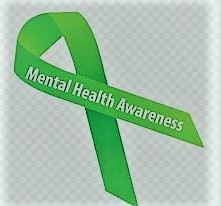Mental health awareness is discussed because our mind is the most important part of our body.
what is mental health awareness?
Though it has gained more attention in recent years, mental health is still a difficult and frequently neglected subject. . Even with increased awareness, stigma and misconceptions about mental health problems persist, which makes it challenging for people to get the care and assistance they need. Raise awareness of common mental health issues, discuss the significance of mental health awareness, and create a culture that is more understanding.
Comprehending Mental Health:
Emotional, psychological, and social well-being are all included in mental health. It has an impact on people’s thoughts, feelings, and behaviors, which impacts their capacity to manage stress, interact with others, and make decisions.
Being in good mental health involves more than just not having a mental disease; it also involves prospering and effectively navigating life’s obstacles. Being aware of the importance of mental health to overall health and the fact that it, like physical health, needs care and attention is the first step toward becoming aware of this.
Typical Mental Health Issues:
A multitude of mental health disorders are widespread, affecting millions of individuals globally. Depression can have a significant impact on day-to-day functioning.
Excessive and acute worry is a feature of anxiety disorders, such as panic disorder and generalized anxiety disorder. Mood swings associated with bipolar disorder range from high (mania) to low (depression). The most essential to comprehend these illnesses to lessen stigma and motivate people impacted to get treatment.
Stigma’s Effect on Mental Health:
One of the biggest obstacles to receiving mental health care is still stigma. Fear of prejudice and judgment is a common barrier that keeps many people with mental health problems from getting the care they need.
Stigmatizing attitudes can originate from cultural norms, misconceptions, or a lack of knowledge regarding mental health. Open communication, compassion, and understanding are necessary to dismantle stigma and establish a welcoming environment where people feel comfortable asking for assistance.
The Value of Early Intervention:
Effective management of mental health disorders requires early intervention. Early symptom detection and obtaining expert assistance can stop issues from getting worse and increase the chance of recovery. Early intervention frequently entails prescription drugs, therapy, or lifestyle modifications. By raising awareness of the warning signals of mental health problems, people can get treatment earlier and lessen the long-term effects on their lives.
Workplace Mental Health:
Concern over mental health in the workplace is growing. Long hours, a stressful job, and a poor work-life balance can all be detrimental to an employee’s mental health. Prioritizing mental health within an organization fosters supportive environments that increase productivity and job satisfaction.
Workplace mental health can be considerably improved by putting in place mental health policies, providing employee help programs, and encouraging an open culture.
Promoting Mental Health in Educational Settings:
Schools are essential in helping pupils with their mental health. Students’ mental health can be impacted by family problems, societal pressures, and academic demands. Crucial actions include putting mental health instruction into practice, making school counselors available, and fostering a conducive learning atmosphere. Students can effectively manage their mental health by being given resources and being encouraged to have open talks about mental health.
Social Media’s Impact on Mental Health:
Social media use can affect mental health in both good and bad ways. Excessive use and exposure to unrealistic standards can cause anxiety, despair, and low self-esteem, even if they can offer social support and a platform for self-expression. Digital detoxes and the promotion of positive social media behaviors can help counteract these detrimental impacts and enhance mental health in general
Coping Mechanisms for Mental Health:
Creating useful coping mechanisms is essential to treating mental health issues. Stress can be reduced and mood can be elevated by practices like mindfulness, deep breathing, exercise, and a balanced diet.
It’s also critical to have a solid support system of friends, family, and mental health specialists. Promoting the adoption of coping mechanisms customized to an individual’s requirements can improve that person’s capacity to handle mental health issues.
Resources and Assistance for Mental Health:
Having access to mental health resources is crucial for receiving assistance and therapy that works. Mental health hotlines, counseling and therapy services, support groups, and instructional publications are some examples of resources.
Making resources accessible and disseminating information about them can greatly enhance people’s capacity to manage their mental health and seek assistance. Campaigns for awareness and community support programs are also essential in helping people get the required assistance.
Raising Community Awareness of Mental Health:
Involving the community is essential to raising mental health awareness. A more knowledgeable and caring society can be achieved by participating in local events, giving to mental health charities, and attending mental health education programs.
Reducing stigma and advancing a healthy community can be accomplished through promoting open communication, fighting for mental health laws, and creating an atmosphere where mental health is freely discussed.
Conclusion:
I hope you like this information if you want to know more about this topic; link 1
another one is also helpful for you; link 2
